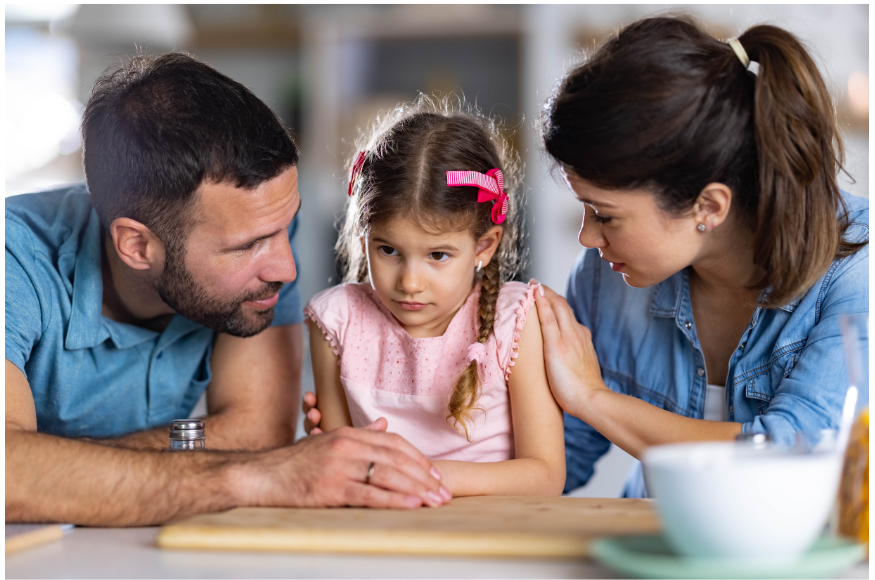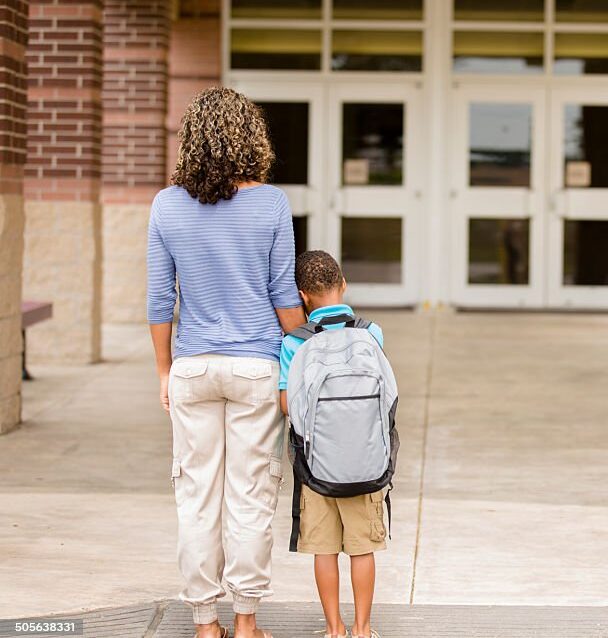Another Look at Parent Anxiety
I have a vivid memory, when my kids were small, of a winter day wrangling the two of them in the waiting area of a Jiffy Lube among the chairs, excessively small spaces, trying to keep them from getting down on the dirty floors, wondering how much longer an oil change could possibly take. I remember there was a small tv on up in the corner playing some kind of morning show, where they were interviewing a writer who was asked to share the poem or piece of literature that had deeply impacted them. The writer talked about the writing of Kahlil Gibran who wrote “On Children”.
And a woman who held a babe against her bosom said, “Speak to us of Children.”
And he said:
Your children are not your children.
They are the sons and daughters of Life’s longing for itself.
They come through you but not from you,
And though they are with you, yet they belong not to you.
You may give them your love but not your thoughts.
For they have their own thoughts.
You may house their bodies but not their souls,
For their souls dwell in the house of tomorrow, which you cannot visit, not even in your dreams.
You may strive to be like them but seek not to make them like you.
For life goes not backward nor tarries with yesterday.
You are the bows from which your children as living arrows are sent forth.
The archer sees the mark upon the path of the infinite, and He bends you with His might that His arrows may go swift and far.
Let your bending in the archer’s hand be for gladness;
For even as he loves the arrow that flies, so He loves also the bow that is stable.
Seeing this and hearing it spoken out loud struck a chord with me that has stayed with me as a parent and as a clinician. Over the years, I have experienced so many instances where parental anxiety has impacted not only myself, but also my clients.
“Parent Anxiety” refers to a state of excessive worry, fear, and stress related to being a parent, often manifesting as constant concern about a child’s well-being, health, development, or safety, which can lead to behaviors like overprotectiveness, intrusive thoughts, and difficulty relaxing due to imagined negative scenarios. So much of the parental anxiety that I see is rooted in the idea that our job is to always hover above and around our children, orchestrating a positive experience of life in every way, making sure to avoid them feeling or having to manage discomfort or disappointment at all costs.
So how am I supposed to deal with my parent anxiety, you ask? First, you must be aware that you are experiencing it. I want you to imagine a giant rollercoaster with your child sitting in the very first car, front row. Parents that make decisions informed by their anxiety will not, under any circumstances, allow that rollercoaster to start without them sitting in the front right next to their child, triple checking their seatbelt, asking “Are you scared?” or “Is the seatbelt tight enough?”, with a look of fear on their face as the ride begins. A parent who can manage their anxiety is standing on the ground watching and waving to their child, yelling up “have fun”, “good for you” or “you’ve got this”, with a smile on their face. The difference here is that the worry of fear the parent might be experiencing is not informing or directing how the parent interacts with the child. They are not communicating their own anxiety or stress to the child, even if they have it. They are saying things to themselves like “they can figure this out”, “they will get through this”, or “he has chosen to do this and I don’t have to like it but I can support him.” They are breathing slowly and tolerating their stress. This doesn’t mean they don’t experience anxiety, but they are not allowing it to run the show.
So often, well-meaning parents who don’t have their own anxiety managed or treated, will allow it to get in the middle of their relationship with their child, which models for kids that anxiety is the way to get through uncomfortable situations. The poem by Gilbran highlights the mindset shift that allows us to balance our fears and worries – “our children come through you but do not belong to you.” Our responsibility as parents is to be a loving guide, provide structure and predictability, and most importantly, communicate our belief in our child’s ability to make decisions for themselves. Encouraging our children to live for themselves and make their own choices, even if they aren’t always right, will pave the way for self-esteem development, trust and belief in themselves, and a solid connection with you.
This month, stay tuned to our social media and learn more about parental anxiety and how to manage it in your own life so it doesn’t manage you.
Megan
Related posts
Creating Family Resilience
If you’ve ever had a family session with me, you’re surely no stranger to the idea of “uncooke
Another Look at Parent Anxiety
I have a vivid memory, when my kids were small, of a winter day wrangling the two of them in the wai
Parent Anxiety
Taming Parent Anxiety: How to Lead with Love and Calm As a family therapist who has spent years help





